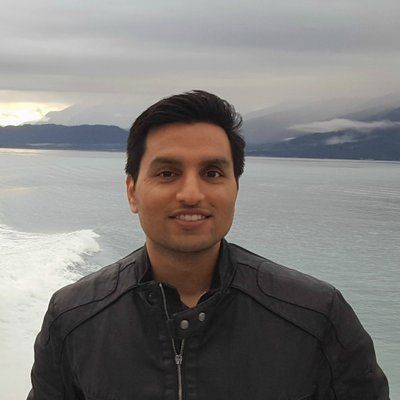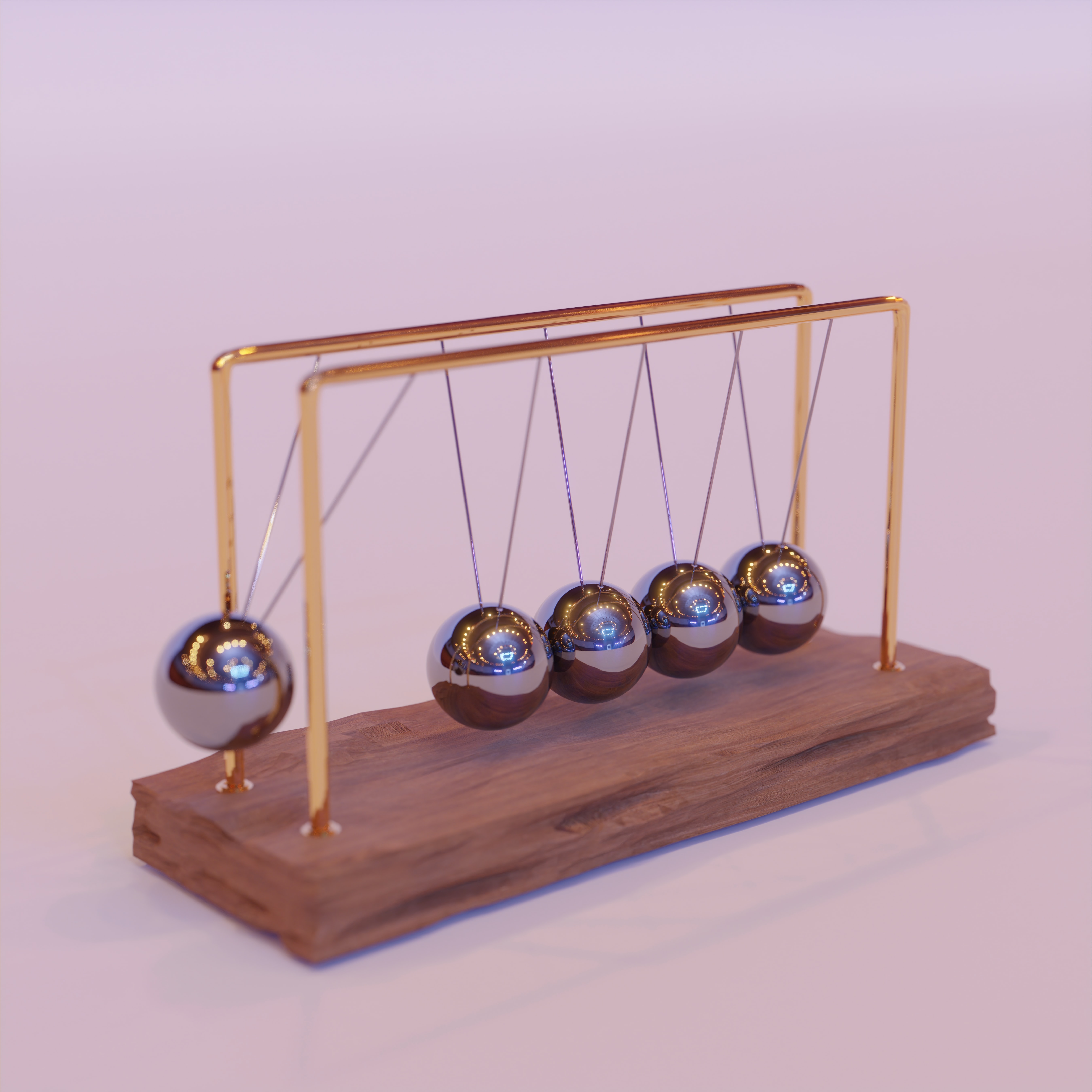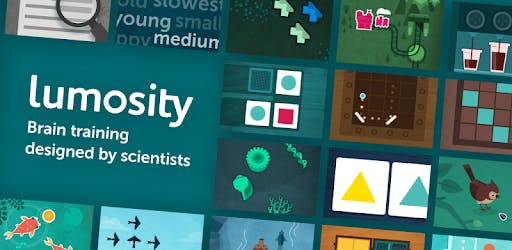Meet The Team #1: Ashu Pachauri (& The power of focussing on the fundamentals)

Welcome to the first edition of Meet The Team, a series of short, intimate conversations with the people at Clarisights. In this installment, we speak with Ashu Pachauri, our CTO.
Clarisights Journal: Ashu welcome to the first installment of Meet The Team. What do you do at Clarisights, Ashu?
Ashu: Hello! I'm the CTO and involved with everything related to tech in general and some things that are directly customer-facing. I don’t really focus on the business side of things on a day-to-day basis, but I do step in when it comes to working with customers on their technical requirements. But mostly my focus is on growing the engineering team and helping the team in terms of the general direction and tackling deeper technical problems. Quite often I end up going into code and fixing bugs, but mostly my time is spent in technical discussions and design discussions with engineers.
CJ: What does a good day of work look like for you?
Ashu: Most days are good days until something breaks and customers are complaining! I don’t mean day to day problems. Those are normal. But sometimes something will break completely—the platform would go down or some pipelines completely collapse. Those are bad days. But other than that, I really enjoy my work and the kind of problems we solve. So for me most days are good days.
CJ: Has your role changed since you first started at Clarisights?
Ashu: It has evolved dramatically. Initially, it was a lot more technical work on the ground. We were trying to get the product ready for market. We were building things very incrementally. Now I have to take a much more holistic view of things. I spend time thinking and working on the general direction that Clarisights wants to take. How can we do better for our current and future customers? Things like that. Earlier, I was more deeply involved in everyday business. Now, not so much. In fact, I used to spend around 80% of my time coding two years ago. Now I think I code only like 30% or 40% of the time.
CJ: Do you wish you could go back to more coding?
Ashu: I don't mind both actually. I don't have any problem with coding, but coding all the time means that you are not thinking accurately about the long term and the overall architecture. I think I have a good balance in my role.
CJ: Is the engineering side of Clarisights built in your image?
Ashu: It's not built in my image currently. We have grown reactively. Over time I have got greater clarity on what the ideal team for us should look like. Today I think I prefer to build specific functions out and then grow them organically, rather than growing the whole team organically. This is what we are also focussing on now. We are trying to get people who are fundamentally strong Software Engineers but also complement the current team on specific functions.
(p.s. We are hiring Software Engineers. Apply here.)
CJ: If you hadn't become a software engineer, what would you have become?
Ashu: Most likely a physicist. I still do a lot of physics. I have notes and lots of books where I have noted down derivations and figured out a bunch of things. I love physics even now.
CJ: What is it about physics that you love?
Ashu: So, mathematics is just a language. That's how I treat it. It's a way to communicate. Mathematics doesn't actually give you any insight. It just enables you to communicate insight better. But physics is something that gives you insight. It helps you understand your world—what is happening around you—better. And it makes you humble. You realize how small you are in the larger scheme of things. So that's something I really love about it.
Physics helps you understand your world—what is happening around you—better. And it makes you humble. You realize how small you are in the larger scheme of things. So that's something I really love about it.
CJ: What about physics makes you humble?
Ashu: Physics gives you a sense of your own scale in the universe. I feel like many people don’t pay attention—or they pay very little attention—to how big the universe is. To how things work. I think many people operate with the mindset that a lot of the world just revolves around them. Which is not true. There is just so much going on which is completely outside your control right now. And there's just so much knowledge out there. Seen against the giant scheme of things, really you are just a speck of dust. Physics makes you start asking questions: What is my purpose? Why am I even here? What am I supposed to fulfil? It's probably a rabbit hole, but I love that rabbit hole.
CJ: Do you think you'd ever go back to becoming a physicist?
Ashu: No, I don't think I would. My first passion is still definitely computer science. The one thing that is problematic with physics is it moves very slowly. Personally I need to see impact. I want my work to have an immediate purpose. Which I seriously doubt is going to happen in the world of physics. It's a very, very slow process. Things change in physics over tens of years while things change in computer science in one week.

CJ: What advice would you give to young software engineers starting out?
Ashu: I think the most important thing is perseverance. To actually solve any problem or to learn any domain you need a certain level of perseverance. You should also have a curiosity to learn and you should question everything. And you need to focus on these fundamentals. Most people focus on technology. They look at all the systems out there. There is Kafka, there is Spark, there is this, there is that. There are hundreds, even thousands of projects, tools and systems that are out there. It is easy to get lost amongst all these projects... you begin to lose your perspective on computer science fundamentals.
Many engineers start looking for what is out there. They’re looking for the tool that will solve their immediate problem. And that's the wrong way to go about it. You should first really understand your problem and try to solve it using CS fundamentals. And if that matches an existing project, sure. You can use it. But most people just try to match it to an existing technology. And that's where they get stuck.
I see this in interviews. People claim they've worked for ten years in the industry. They’ve worked on every conceivable project or language. But eventually, when it comes down to solving core problems or even understanding them, they falter. It’s not that they can’t solve these questions. They just have to unlearn their current ways of approaching problems, and really go back to focussing on the fundamentals. So that is really my main advice to young engineers.
I see this in interviews. People claim they've worked for ten years in the industry. They’ve worked on every conceivable project or language. But eventually, when it comes down to solving core problems or even understanding them, they falter. It’s not that they can’t solve these questions. They just have to unlearn their current ways of approaching problems and really go back to focussing on the fundamentals. So that is really my main advice to young engineers.
CJ: Have you changed much as a person since starting at Clarisights?
Ashu: I think I have changed quite a lot actually. Earlier, I did not appreciate how important it is to approach problems in a structured manner. Or how important it is to actually give a sequence and priority to the actions that you're taking.
There have been personal reasons for these changes as well. For example, my father was diagnosed with an incurable disease. So I used to spend hours and hours reading hundreds of different research papers and journals, just understanding how to solve this. So just pursuing, going deeper into something which is completely unrelated. That was not something I used to enjoy doing. But now I have kind of started to learn how to develop a taste for something outside my usual spheres of interest. Biology, for instance. That is more of a personal transformation. I find myself now having more patience for new topics and new areas of interest.
... pursuing, going deeper into something which is completely unrelated. That was not something I used to enjoy doing. But now I have started to learn how to develop a taste for something outside my usual spheres of interest. Biology, for instance. That is more of a personal transformation. I find myself now having more patience for new topics and new areas of interest.
CJ: What are some really cutting edge things in computer science that you are keeping an eye on?
Ashu: Quantum computing. The great thing about quantum computing is that it kind of breaks the barriers of the traditional Von Neumann model of computing. For instance with quantum computing you can break cryptographic hashes in polynomial time. Quantum computing holds a lot of promise. It will help us solve a lot of problems that we currently consider unsolvable. And not just in the field of computing but across many aspects of life. Plus, quantum computing is on the cutting edge of physics as well. You need cutting edge physics to actually build quantum computers.
But if I come down to an aspect of computing which has materialised, but is still cutting edge, I think I am really interested in artificial intelligence and machine learning. This is not something that personally excites me as a field to pursue, because I think it does not make people smarter. In fact if you really want to make people do better things, cybernetics or some sort of genetic engineering is probably the way to go. But I'm watching out for it. The only problem is that it has been happening for the last 50 years. I don't know how long it's going to take before AI actually becomes reality. Probably quantum computing is one of the answers here to really materialize the vision of AI.
CJ: What do you do on the weekend?
Ashu: I'm a big fan of solving puzzles and brain games in general. I have so many accounts on a bunch of different websites where you solve mental games, puzzles, things like that. Just give me something to keep my head occupied. I can’t go to sleep if my brain is not fully exhausted. Often, my wife just asks me to play some of those games to exhaust myself so that I would go to sleep on time. I also participate in programming contests from time to time. My parents just think I'm still doing office work on the weekends. And they keep complaining: Ashu why are you still in front of your laptop?
When I'm not doing that, I usually try to read books. I always have a reading list going. I try to catch up on those on the weekends. I used to be able to devote a lot more time to books, but recently I became a father. So some weekends... they just pass by and I don't even know what happened!
CJ: Tell us something nobody else at Clarisights knows yet?
Ashu: I have had exceptionally good memory since childhood. I test it by playing puzzles. I go and play those memory games just to feel that sense of pleasure: ‘Ashu, you’ve still got it!’. You should really check out Lumosity.com. It is a great website. Lots of really interesting puzzles and mental challenges.

CJ: And finally any book recommendations?
Ashu: Anyone who's interested in how the brain works or how computer science and mathematics relates to life... there is a book called Gödel, Escher, Bach. It's mostly about the ubiquity of recursion. Recursion is everywhere in your life.
CJ: Ashu welcome to the first instalment of Meet The Team. What do you do at Clarisights?
Ashu: Ha ha.

